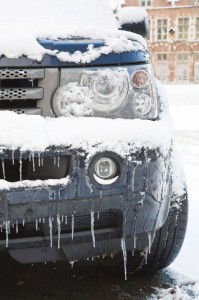Winter driving can be rough. Get through it with these tips
 Winter driving isn’t something to take lightly. It can be a scary experience even for the most seasoned of drivers, which is why learning proper driving and safety techniques will not only help you feel more self-assured in the driver’s seat but can also help you avoid a costly and dangerous accident.
Winter driving isn’t something to take lightly. It can be a scary experience even for the most seasoned of drivers, which is why learning proper driving and safety techniques will not only help you feel more self-assured in the driver’s seat but can also help you avoid a costly and dangerous accident.
Snow and ice can overwhelm even the best of drivers. Consider these tips to help you keep control if you have to be on the road:
Stay home. The best way to avoid a winter driving accident is to avoid driving. So if the National Weather Service issues a severe winter weather advisory, consider staying inside until you know it’s safe. You may arrive at your destination a little later, but taking a risk in hazardous conditions also comes at a cost.
Tune in. When driving is a necessity, and staying home isn’t an option, tune in to local media for up-to-date information on problem areas and trouble spots. Your local radio or TV station will usually have traffic cameras in place to let you know what is happening before you get there. This can save you time.
Get a grip. Snow tires are designed with deeper tread than all-season tires, allowing them to grip the snow better. And that grip can make all the difference. So if you live in an area with regular snow fall, a good pair of snow tires is a wise investment.
Know your vehicle. One of the best ways to increase your chances for safe travel is to know your own vehicle. Every vehicle requires unique care, so learn how your steering and brakes work and the best way they handle extreme weather conditions.
Stay on the beaten path. To increase your chances of arriving at your destination without incident, only drive in areas where the snow has been cleared. Plowing and salting crews generally work around the clock in extreme weather conditions. Waiting for them to do their work can serve you well.
If snow is a fixture where you live, it pays to learn proper winter driving. With so many things out of your control, arming yourself with knowledge to drive smart and drive safe helps you maintain control in the areas you can control.






